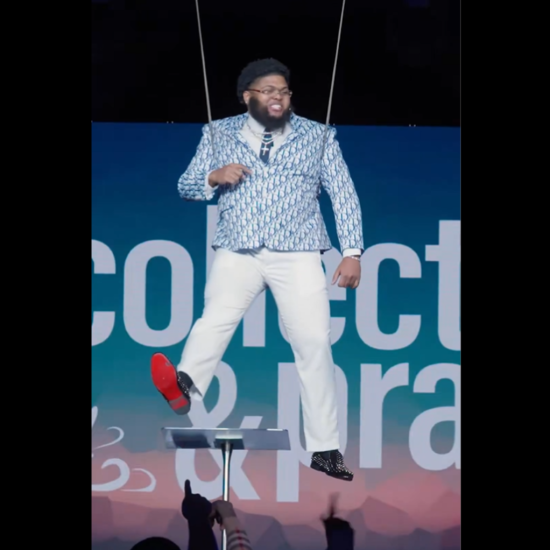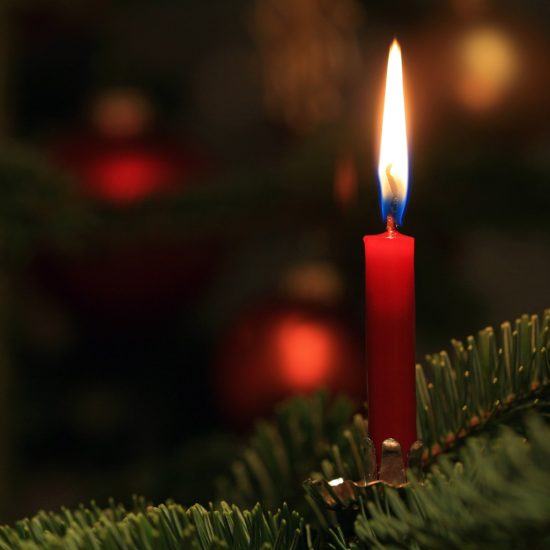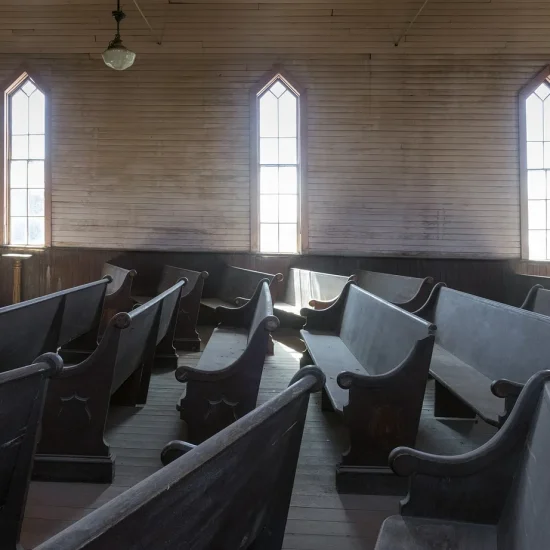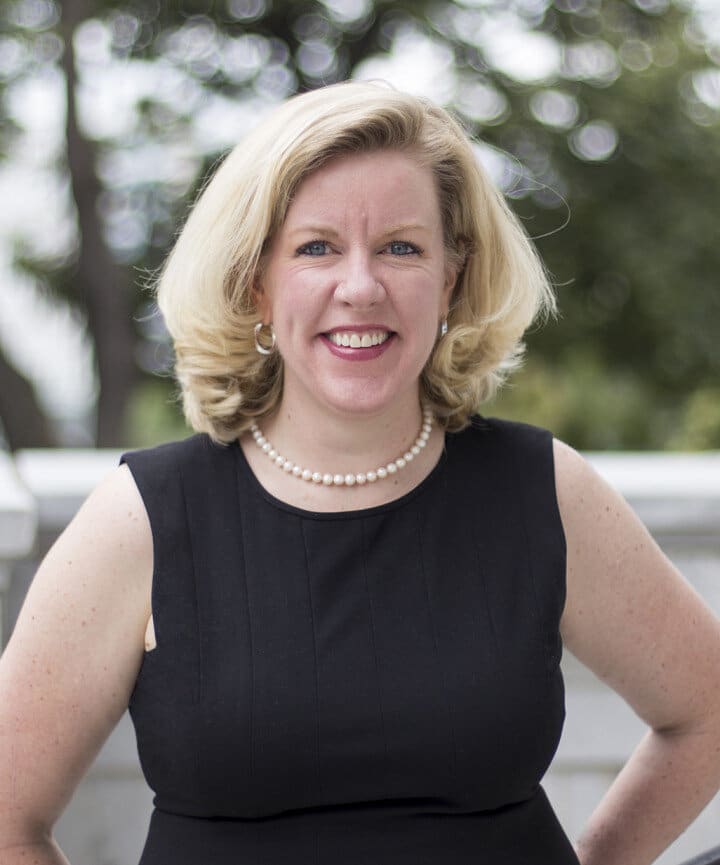
Pastors have broad job descriptions. They are preachers, teachers, counselors, administrators, organizers, and so much more. Many church members rarely interact with their pastors outside of Sunday morning worship, making it difficult to understand the dynamics of this role. “Behind the Pulpit” is a regular feature intended to pull back the curtain on the minister’s life and introduce our readers to how a diverse set of leaders go about shepherding their flocks.
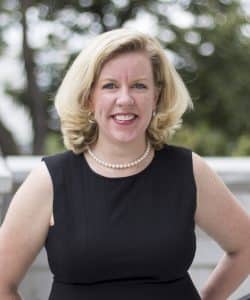
Donna Claycomb Sokol
This installment features an interview conducted by email with Donna Claycomb Sokol, who has been the pastor of Mount Vernon Place United Methodist Church in Washington, D.C., since 2005. Her responses have been lightly edited for clarity.
What didn’t you learn in seminary that you needed to know for church leadership?
I am forever grateful for my seminary formation at Duke Divinity School, where I was offered knowledge in the classroom and experience through field education. I felt more than prepared to step into my first role as an associate pastor. When I became a lead pastor, I quickly realized how much I wanted to learn about leading a staff team, managing others for success, and equipping lay leaders for transformational ministry.
How has your personal understanding of God changed by serving the local church?
God – and God’s love – are larger than anything I could have ever imagined prior to serving in the local church. I am consistently amazed by the image of the Divine I see in others, by God’s extraordinary generosity, and by God’s amazing grace.
How have your personal religious/devotional practices been shaped and altered by being the shepherd of a flock?
When I look back upon my early years of ministry, I see how much I tried to do on my own. My fuel was coffee and Diet Coke, substances that left me exhausted at the end of each day. I later learned how I cannot possibly rely upon my own strength whether it is in preparing to preach, walking with someone through the valley of the shadow of death, responding to a disappointed parishioner, or being present in the ups and downs of life.
Now, I start each day with two online devotionals – one from the Northumbria Community and one from Irish Jesuits. I seek to embody and model financial generosity. I have learned it is the only way I can ever understand God’s generosity, let alone teach others to embrace financial generosity as a spiritual discipline. I am also in a clergywomen’s group with four other women, which is often a source of manna, goodness, and accountability.
What does justice look like in your local context? How about love? How do you lead people towards both?
Mount Vernon Place United Methodist Church (MVP) was founded as the “Representative Church” for the Methodist Episcopal Church South, the part of Methodism that broke off in 1844 in support of slavery. Our extraordinary building was built as a monument to the southern church and all it stood for. Inspired by John Hope Franklin’s words, “we’ve got to tell the unvarnished truth,” we have sought to do just that as a congregation: telling our full story of our founding, the fundraising efforts behind our building, and repenting for our roots in white supremacy.
Our Racial Justice Reading Group has been actively reading and sharing time together for the last five years. We seek to be an anti-racist church in all the ways we can. We are also a member of the Reconciling Ministries Network and are continuously seeking to extend the widest welcome possible to LGBTQ+ people, while working for change in our denomination’s official teaching on human sexuality. We are a member of the Washington Interfaith Network where we partner with other congregations to galvanize power for economic justice in our city. MVPers also regularly participate in marches and other witnesses in our city.
We are committed to sharing God’s all-encompassing love with all people in tangible, and prayerfully transformational, ways. People are always invited on the journey of giving and receiving this love.
What is the funniest or oddest thing that has ever happened to you in ministry (that you can share without breaking confidentiality)?
We are a church physically located in the heart of the nation’s capital. As such, we regularly have people experiencing homelessness just outside our doors and sometimes on our property. One Sunday morning, I arrived early and found a pile of human feces on the front porch where people enter the sanctuary. A very unique, often unfiltered, church member was there to help me clean it up. When it came time to share joys and concerns, he stood and asked the congregation to pray that the pastor would not have to pick up poop again.
We’re coming out of a pandemic, how has that been for you and your church?
As I write these words in late July of 2021, I am not sure we are coming out of a pandemic. Rather, we are watching a variant spread rapidly across our nation, hospitalizations rise, and too many people resisting the vaccine instead of embracing it as a way to love their neighbor as they love themselves.
With this reality in mind, the last 16 months have been extraordinarily challenging for me personally and professionally. I love being with people – in the flesh. Preaching to a MacBook camera is anything but fulfilling. It has been hard. And I’ve witnessed the church pivot quicker than it has ever pivoted before. Most churches now livestream. We are embracing the gift of being in the community instead of always expecting the community to come inside our buildings. And our congregation now extends across the country, to Cape Town, South Africa, and Beirut, Lebanon. Our small groups are also national and international. I have learned to praise God for the engineers who imagined Zoom.
What gives you hope in the church today for what the church will be tomorrow?
I am hopeful for the ways in which the church has been beckoned to learn new things in this season. I am hopeful for a spirit of experimentation that many pastors and lay leaders have employed. I am hopeful for all the people who have been called to reckon with racial injustice for the first time and are now actively working for a different tomorrow. I am hopeful that the church can play a significant role in reminding people that while they may have felt alone during the last 16 months, they do not have to continue to do life alone because of the church.
I am also hopeful that the church will continue to speak up and name evil, injustice, and oppression wherever they present themselves while working for a radically different tomorrow. I would not have gotten through this past year without knowing God is with me. I want to continue to do all I can to share God’s love and proclaim God’s vision for how we are to live, move, and have our being. I live in a city where such a witness is desperately needed.




